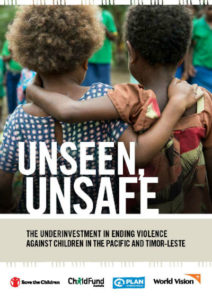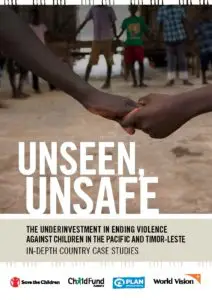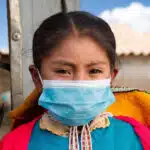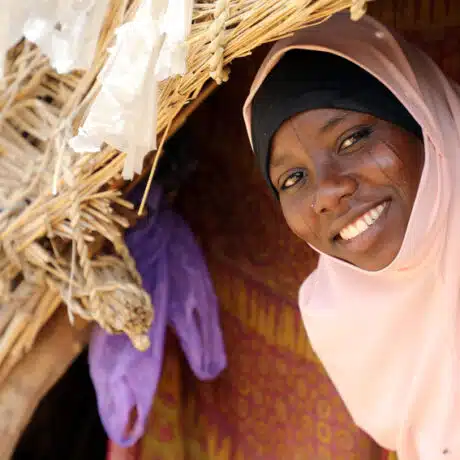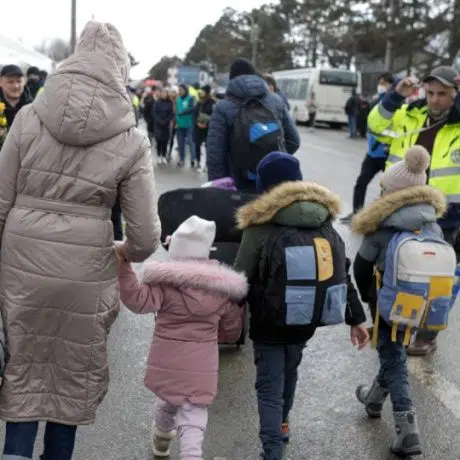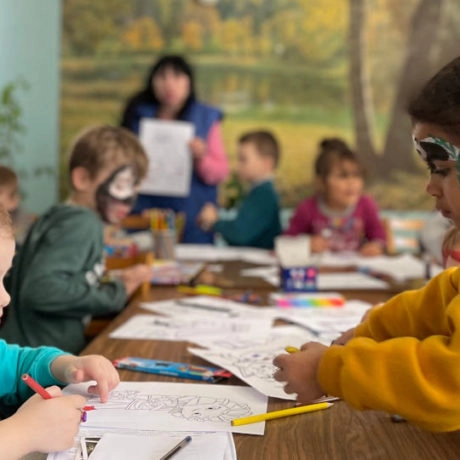News and Stories - Child Protection - 30 July 2019
Unsafe, Unseen
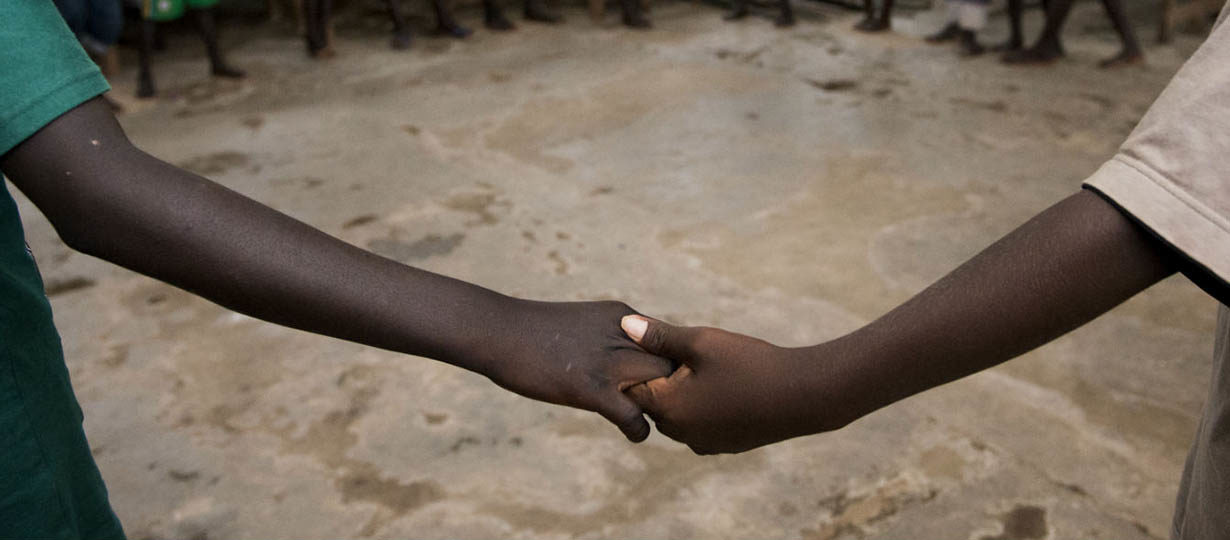
The underinvestment in ending violence against children in the Pacific and Timor-Leste
Today, together with Save the Children, World Vision and ChildFund, we are launching the ’Unseen and Unsafe: Underinvestment in Ending Violence Against Children in the Pacific and Timor-Leste’ report.
This comprehensive report reveals shocking levels of physical, emotional and sexual violence, as well as neglect faced by many children living in the Pacific and Timor-Leste.
Children who face violence and abuse often suffer from serious physical injuries, unwanted pregnancy, sexually transmitted infections, mental trauma, and even death.
Physically, children are also more susceptible to injury than adults as their bodies are still developing. Violence can lead to stunted brain development which affects their concentration, language development and ability to read and write.
Plan International Australia CEO Susanne Legena described the overwhelming figures in the Unseen and Unsafe report as ‘heart-wrenching’.
“Anyone confronted by these figures would agree that this is just horrific. All children deserve to feel safe, to be healthy and loved, no matter where they live. For too long, confronting this silent epidemic of violence against children has been ignored in foreign policy. We cannot let these children down.
“It’s time to put children at the heart of all of Australia’s development programs, with policies and resources that prioritise child protection and child rights.”
Read the report and case study below
The report found:
- Between 70 and 87% per cent of children across eight countries experience violent discipline at home.
- 1 in 4 adolescent girls experienced physical violence, and 1 in 10 sexual violence;
- In Papua New Guinea alone, 27 per cent of parents or carers reported beating their children “over and over as hard as they could”.
- The level of funding and policy measures currently addressing the epidemic is inadequate. For example, in 2017 just $1.1 million (or 0.1 percent of all Australian foreign aid to the Pacific and Timor-Leste) was directed to programs specifically addressing violence against children.
- Without greater investment, yet another generation in the Pacific and Timor-Leste will face the ongoing human and economic costs wrought by violence perpetrated against children.
This is an incredibly complex issue, but targeted programs are making a difference. These programs aim to build children’s’ resilience and their ability to seek support and teach positive parenting to prevent violence. But these programs must have secure funding to succeed.
The report finds there have also been inadequate levels of funding and policy measures to address the epidemic. Just $1.1 million or 0.1 percent of all Australian foreign aid to the Pacific and Timor-Leste in 2017 was directed to programs specifically addressing violence against children. Only $3.4 million was spent in total by all foreign donors on this critical issue.
We urge the Australian Government to increase investment in programs specifically addressing violence against children to 1.5 per cent of overseas development assistance.
This equates to an investment of $55 million over the next three years. If we want future generations of children in the Pacific to grow and prosper, a determined and meaningful investment in their well being and safety is critical.
The full list of recommendations are below:
- The Australian government significantly increases its EVAC-specific ODA allocation to $55 million over three years in the Pacific and Timor-Leste (which is 1.5% of regional ODA).
- Other major donors commit to increasing their investment in EVAC-specific initiatives in the Pacific and Timor-Leste to 1.5% of their ODA.
- All donors establish a policy platform that puts children at the centre of development. Through the development of child-centred policies and establishing dedicated resources to oversee the mainstreaming of child protection and child rights across all thematic areas.
- All donors develop an ‘ending violence against children’ policy marker (similar to the gender equality marker) to enable the tracking and reporting of expenditure on EVAC initiatives.
- All donors strengthen the intersectionality between violence against women and children programming in the Pacific and Timor-Leste.

